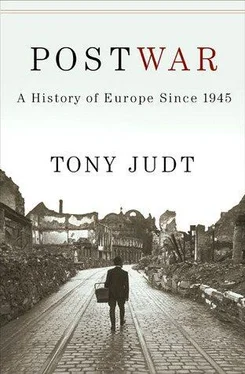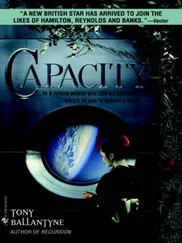The Soviet losses in particular include prisoners of war. The Germans captured some 5.5 million Soviet soldiers in the course of the war, three quarters of them in the first seven months following the attack on the USSR in June 1941. Of these, 3.3 million died from starvation, exposure and mistreatment in German camps—more Russians died in German prisoner-of-war camps in the years 1941-45 than in all of World War One. Of the 750,000 Soviet soldiers captured when the Germans took Kiev in September 1941, just 22,000 lived to see Germany defeated. The Soviets in their turn took 3.5 million prisoners of war (German, Austrian, Romanian and Hungarian for the most part); most of them returned home after the war.
In view of these figures, it is hardly surprising that post-war Europe, especially central and eastern Europe, suffered an acute shortage of men. In the Soviet Union the number of women exceeded men by 20 million, an imbalance that would take more than a generation to correct. The Soviet rural economy now depended heavily on women for labour of every kind: not only were there no men, there were almost no horses. In Yugoslavia—thanks to German reprisal actions in which all males over 15 were shot—there were many villages with no adult men left at all. In Germany itself, two out of every three men born in 1918 did not survive Hitler’s war: in one community for which we have detailed figures—the Berlin suburb of Treptow—in February 1946, among adults aged 19-21 there were just 181 men for 1,105 women.
Much has been made of this over-representation of women in post-war Germany especially. The humiliated, diminished status of German males—reduced from the supermen of Hitler’s burnished armies to a ragged troupe of belatedly returning prisoners, bemusedly encountering a generation of hardened women who had perforce learned to survive and manage without them—is not a fiction (the German Chancellor Gerhard Schroeder is just one of many thousands of German children who grew up after the war without fathers). Rainer Fassbinder put this image of post-war German womanhood to effective cinematic use in the Marriage of Maria Braun (1979), where the eponymous heroine turns her good looks and her cynical energies to advantage, despite her mother’s entreaties to do nothing ‘that might harm your soul’. But whereas Fassbinder’s Maria carried the burden of a later generation’s resentful disillusion, the real women of 1945 Germany faced more immediate difficulties.
In the final months of the war, as the Soviet armies pushed west into central Europe and eastern Prussia, millions of civilians—most of them German—fled before them. George Kennan, the American diplomat, described the scene in his memoirs: ‘The disaster that befell this area with the entry of the Soviet forces has no parallel in modern European experience. There were considerable sections of it where, to judge by all existing evidence, scarcely a man, woman or child of the indigenous population was left alive after the initial passage of Soviet forces… The Russians… swept the native population clean in a manner that had no parallel since the days of the Asiatic hordes.’
Chief among the victims were adult males (if any remained) and women of any age. 87,000 women in Vienna were reported by clinics and doctors to have been raped by Soviet soldiers in the three weeks following the Red Army’s arrival in the city. A slightly larger number of women in Berlin were raped in the Soviet march on the city, most of them in the week of May 2nd-7th, immediately preceding the German surrender. Both of these figures are surely an underestimate, and they do not include the uncounted number of assaults on women in the villages and towns that lay in the path of the Soviet forces in their advance into Austria and across western Poland into Germany.
The behaviour of the Red Army was hardly a secret. Milovan Djilas, Tito’s close collaborator in the Yugoslav partisan army and at the time a fervent Communist, even raised the matter with Stalin himself. The dictator’s response, as recorded by Djilas, is revealing: ‘Does Djilas, who is himself a writer, know what human suffering and the human heart are? Can’t he understand the soldier who has gone through blood and fire and death, if he has fun with a woman or takes a trifle?’
In his grotesque way, Stalin was half right. There was no leave policy in the Soviet army. Many of its infantry and tank crews had fought their way back for three terrible years in an unbroken series of battles and marches across the western USSR, through Russia and Ukraine. In the course of their advance they saw and heard copious evidence of German atrocities. The Wehrmacht’s treatment of war prisoners, of civilians, of partisans and indeed of anyone or anything that got in its way, first in its proud advance to the Volga and the gates of Moscow and Leningrad, then in its bitter, bloody retreat, had left its mark on the face of the land and in the soul of the people.
When the Red Army finally reached central Europe, its exhausted soldiers encountered another world. The contrast between Russia and the West was always great—Czar Alexander I had long ago regretted allowing Russians to see how Westerners lived—and it had grown even sharper during the war. While German soldiers wreaked devastation and mass murder in the East, Germany itself remained prosperous—so much so that its civilian population had very little sense of the material cost of war until quite late in the conflict. Wartime Germany was a world of towns, of electricity, of food and clothing and shops and consumer goods, of reasonably well-fed women and children. The contrast with his own devastated homeland must have seemed unfathomable to the common Soviet soldier. The Germans had done terrible things to Russia; now it was their turn to suffer. Their possessions and their women were there for the taking. With the tacit consent of its commanders, the Red Army was turned loose on the civilian population of the newly-conquered German lands.
On its route west the Red Army raped and pillaged (the phrase, for once, is brutally apt) in Hungary, Romania, Slovakia and Yugoslavia; but German women suffered by far the worst. Between 150,000 and 200,000 ‘Russian babies’ were born in the Soviet-occupied zone of Germany in 1945-46, and these figures make no allowance for untold numbers of abortions, as a result of which many women died along with their unwanted foetuses. Many of the surviving infants joined the growing number of children now orphaned and homeless: the human flotsam of war.
In Berlin alone, there were some 53,000 lost children by the end of 1945. The Quirinale gardens in Rome became briefly notorious as a gathering place for thousands of Italy’s mutilated, disfigured and unclaimed children. In liberated Czechoslovakia there were 49,000 orphaned children; in the Netherlands, 60,000; in Poland it was estimated that there were about 200,000 orphans, in Yugoslavia perhaps 300,000. Few of the younger children were Jewish—such Jewish children as survived the pogroms and exterminations of the war years were mostly adolescent boys. In Buchenwald, 800 children were found alive at the liberation of the camp; in Belsen just 500, some of whom had even survived the death march from Auschwitz.
Surviving the war was one thing, surviving the peace another. Thanks to early and effective intervention by the newly formed United Nations Relief and Rehabilitation Administration (UNRRA) and the occupying allied armies, large-scale epidemics and the uncontrolled spread of contagious diseases were avoided—the memory of the Asian ’flu that swept through Europe in the wake of the First World War was still fresh. But the situation was grim enough. For much of 1945 the population of Vienna subsisted on a ration of 800 calories per day; in Budapest in December 1945 the officially provided ration was just 556 calories per day (children in nurseries received 800). During the Dutch ‘hunger winter’ of 1944-45 (when parts of the country had already been liberated) the weekly calorie ration in some regions fell below the daily allocation recommended by the Allied Expeditionary Force for its soldiers; 16,000 Dutch citizens died, mostly old people and children.
Читать дальше












